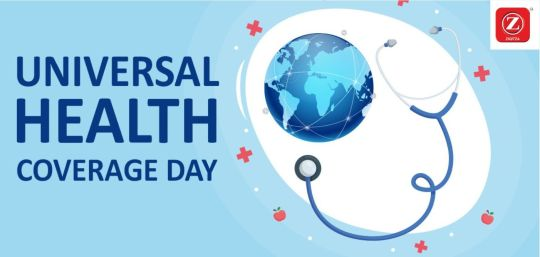International Universal Health Coverage Day is observed annually on December 12 by people all around the world. The purpose of the day is to raise awareness of how crucial it is to create reliable, resilient healthcare systems all across the world. International Universal Health Coverage Day, according to Ziqitza Healthcare, strives to increase public awareness of the need for robust and resilient health systems and universal health coverage with multi-stakeholder partners.
Every year on December 12, supporters of universal health coverage (UHC) raise their voices to tell the tales of the millions of people who are still waiting for health, to commemorate what has already been accomplished, to urge leaders to make greater and more informed investments in health, and to inspire a wide range of groups to commit to working toward UHC by 2030.
The United Nations claims that the emphasis of this year’s theme, “Build the world we want: A healthy future for all,” is on the necessity of equity, trust, healthy environments, investments, and accountability in order to create effective health systems. UHC Day is an opportunity to celebrate progress and raise awareness about what is needed to provide essential health care to families and communities worldwide. According to Ziqitza Rajasthan, this Universal Health Coverage Day kicks off WHO’s 75th anniversary of making health for all a reality, as well as the countdown to the UN General Assembly’s high-level meeting on UHC in 2023.
According to Ziqitza Limited, the Western Pacific Region’s UHC service coverage index, which measures progress in increasing access to essential health services, has increased from 49 in 2000 to 80 in 2019. However, many countries have inequities in service coverage and financial hardship, particularly among vulnerable and hard-to-reach populations.
The COVID-19 pandemic has once again demonstrated that UHC and health security are intertwined goals that we achieve through the same health system – in crisis and in calm. No matter who they are, where they live, or how much money they have, health systems must function for everyone if they are to be effective. ZHL Rajasthanexplains that women, children, adolescents, and the most vulnerable are prioritised in equitable health coverage because they face the most significant barriers to essential care.
The pandemic demonstrated the dependency between a nation’s economic success and the protection of its people’s health, proving that neither can be achieved without the other in order to sustainably build the economy. The need for articulating the contributions of various sectors of activity and government for recovery and transformation of the health systems of the Region toward Universal Health and more just and resilient societies is reinforced by the social and economic crisis characterised by an increase in unemployment, poverty, and the exacerbation of long-standing inequities.
Everyone, everywhere, should have access to the health services they require without fear of financial hardship under UHC. Ziqitza Limited Rajasthan explains that It is incorporated into the Sustainable Development Goals (SDG target 3.8) and encompasses the entire spectrum of essential health services, including health promotion, prevention, and treatment.
Population coverage (who receives services, linked to equity), service coverage (what health services are available), and financial protection are the three dimensions of UHC (ensuring health services do not lead to financial hardship). UHC is founded on the principles of equity, non-discrimination, and the right to health, ensuring that even the most vulnerable populations are reached and covered, and that no one is left behind.
According to Secretary-General Antonio Guterres
“Universal health coverage is integral to delivering the Sustainable Development Goals, our blueprint of a better future for people and the planet. On this International Day, let us reaffirm our commitment to health for all as an investment in humanity, well-being, and prosperity for everyone”.


